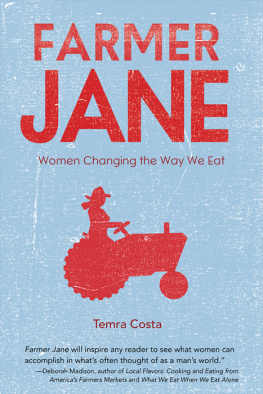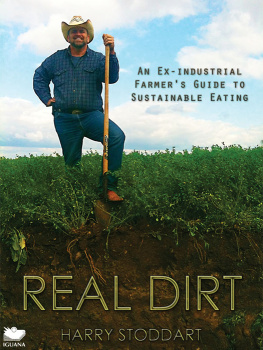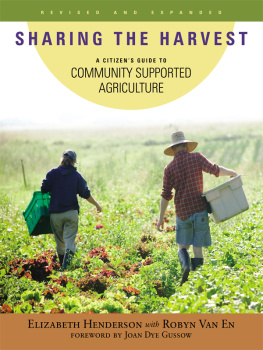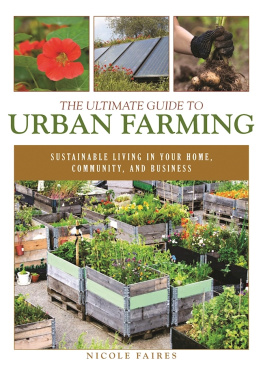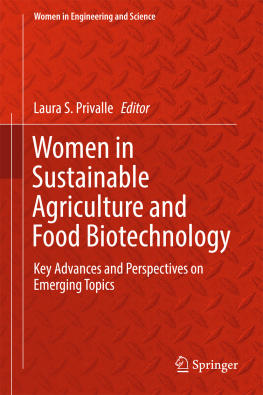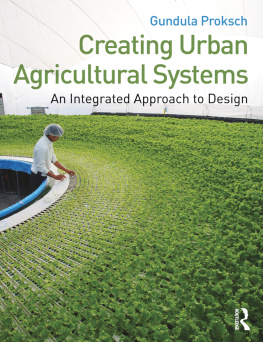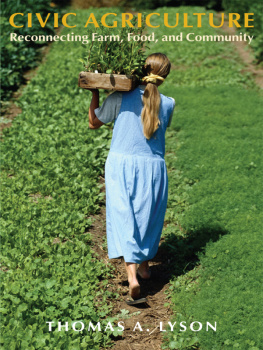Temra Costa - Farmer Jane
Here you can read online Temra Costa - Farmer Jane full text of the book (entire story) in english for free. Download pdf and epub, get meaning, cover and reviews about this ebook. year: 2010, publisher: Gibbs Smith, genre: Home and family. Description of the work, (preface) as well as reviews are available. Best literature library LitArk.com created for fans of good reading and offers a wide selection of genres:
Romance novel
Science fiction
Adventure
Detective
Science
History
Home and family
Prose
Art
Politics
Computer
Non-fiction
Religion
Business
Children
Humor
Choose a favorite category and find really read worthwhile books. Enjoy immersion in the world of imagination, feel the emotions of the characters or learn something new for yourself, make an fascinating discovery.
- Book:Farmer Jane
- Author:
- Publisher:Gibbs Smith
- Genre:
- Year:2010
- Rating:4 / 5
- Favourites:Add to favourites
- Your mark:
- 80
- 1
- 2
- 3
- 4
- 5
Farmer Jane: summary, description and annotation
We offer to read an annotation, description, summary or preface (depends on what the author of the book "Farmer Jane" wrote himself). If you haven't found the necessary information about the book — write in the comments, we will try to find it.
Farmer Jane profiles thirty women in the sustainable food industry, describing their agriculture and business models and illustrating the amazing changes they are making in how we connect with food. These advocates for creating a more holistic and nurturing food and agriculture system also answer questions on starting a community-supported agriculture (CSA) program, how to get involved in policy at local and national levels, and how to address the different types of renewable energy and finance them.
Farmer Jane — read online for free the complete book (whole text) full work
Below is the text of the book, divided by pages. System saving the place of the last page read, allows you to conveniently read the book "Farmer Jane" online for free, without having to search again every time where you left off. Put a bookmark, and you can go to the page where you finished reading at any time.
Font size:
Interval:
Bookmark:

Farmer Jane
Digital Edition v1.0
Text 2010 Temra Costa
All rights reserved. No part of this book may be reproduced by any means whatsoever without written permission from the publisher, except brief portions quoted for purpose of review.
Gibbs Smith, Publisher
PO Box 667
Layton, UT 84041
Orders: 1.800.835.4993
www.gibbs-smith.com
Library of Congress Catalog-in-Publishing Data
Print ISBN-13: 978-1-4236-0562-1
Print ISBN-10: 1-4236-0562-4
1. Women social reformers. 2. FoodUnited States. 3. Agricultural information networks. 4. Farm produceUnited StatesMarketing. 5. Local foodsUnited States. 6. Community-supported agricultureUnited States. 7. New agricultural enterprisesUnited States. I. Title.
HD9006.C718 2010
338.1973dc22
22009034912
For my parents and all of the food- and farm-loving women
This book is about the women behind the delicious revolution thats changing how we eat and farm in the United States. I often get asked why men werent included in this book, and its not that men arent changing how we eat. Men are definitely involvedits just that theyre really good at getting all of the press. Women, on the other hand, have long been underrepresented in the public sphere about the sheer amount of work they do, at home and outside of the home, in food planning and preparation, while advocating for a healthier food system[] and environment. They are our heroes of today through their everyday acts of living, by becoming the fastest growing number of diversified farmers in the country, controlling the majority of household spending, dominating nonprofits dedicated to shifting the balance from conventional to sustainable foods, and through the creation of menus and businesses that reflect their socio-environmental values. This delicious revolution, as Alice Waters would say, unfolds as we look at the life stories of thirty key women that are making a more sustainable food system the solution to our health and environmental woes.
Yet our food system hasnt always required such advocacy or noise. After all, its only been in the last century that our food and rural places have experienced the industrialization that is making us, and the land, sick. During this relatively short time, our food has gone awry, transitioning from a system that was almost entirely local, seasonal, and regionally appropriate, to the very literal global supermarket of today. Most often the fruits and vegetables of this global supermarket are devoid of flavor and provenance, and when paired with hormone-filled meats and dairy, processed junk food, and products from genetically engineered plants (namely corn, soy, and canola), these newfangled foods are the detriment of humanity and the natural world. The industrialization of our food may have been perceived to be a boon for people with limited incomes for a very brief moment, but we are starting to see the elephant in the room. Cheap, conventional (chemical) food abundance has led to the rise of obesity, diabetes, and other food-related health issues caused by improper diets. But health issues aside (they could fill an entire book), we have become disconnected from the very people and the land that we are dependent on to provide our very sustenance. We have lost sight of the fact that the fertility of the soil determines our vitality. But this, too, is starting to change.
Having not grown up on an all-local, organic, or even sustainable diet (minus the wild game and fish my father hunted and brought home), my learning curve was just the same as anyone elses. In the relatively food challenged climes of Wisconsin, my family and I didnt preserve foods or garden, nor were we aware of any farmers markets; it just wasnt a part of our lifestyle. My grandmother, on the other hand, did have todays coveted food preservation skills. I remember eating her pickles, jams, and other foods she had stocked for the winter. However, for me, and for most that have awakened to the impact of sustainable foods,[] it took a special moment.
My visceral moment of getting it was at age nineteen when I walked into the Williamson Street Cooperative in Madison, Wisconsin. The smells of seaweed, organic vegetables, fermented foods, sprouted granola, and whole grain bread were part of an entirely unknown food universe. These foods led me to wonder what the heck all the other foods were and where they came from. Once I started questioning the integrity of something as essential as food, there was no turning back.
After studying agriculture and advocating for sustainable foods while in college, I was fortunate to find a position with the Community Alliance with Family Farmers (CAFF). Living in California fueled my conviction that another type of eating experience was possible, as I dove into all of the great varieties that my new food culture had to offer: kadota figs, fuyu persimmons, mixed greens and collards, crenshaw melons, with each new season providing new discoveries. My farmers market purchases were supplemented by fruit trees growing around my house in the infamous Village Homes of Davis. What I couldnt get from either market or tree, I would buy at the Sacramento Natural Food Coop (one of the several dozen remaining member-owned food co-ops in the country). My grandmother was tickled when I would call her to get canning and jamming advice to put up some of my favorite fruits and veggies for the winter.
I learned that every time we buy food, we vote with our dollars for either chemical or non-chemical agriculture, for fair trade, or for seasonal foods, and soon I found myself spending upwards of 30 percent of my nonprofit salary by voting with my fork. This wasnt an easy reality to swallow, but I continued to do so. As Jessica Prentice articulates in Promoting Local and Seasonal Food, if people can afford cell phones, plasma TVs and $200 jeans and shoes, they can spend a little more money on their foodeven if its only $5 extra a week. So, admittedly, eating seasonally and sustainably does cost a bit more per pound. And this is ultimately an issue of public policy (the Farm Bill) and social justice. Food is such a common denominator that it is why these women have chosen to advocate for better foodseasonal, sustainable, and freshas their focal point in making the greatest impact on peoples lives and the environment. The issue of food is one that cuts through ethnic boundaries to each of our stomachs. Its an issue that each of us vote on every day .
This book celebrates the results that we are starting to see due to womens efforts to change how our country eats and farms. Since 2002, we have started to see an increase in the number of farms in the country, the number of farmers markets and community supported agriculture programs, and the number of people who are concerned about where their food is coming from.[]
Of the top fifteen national nonprofits focusing on sustainable agriculture issues, women comprise 61.5 percent of the employees and 60 percent of the executive directors.[]
Women are running successful food businesses too: restaurants, catering companies, and community-supported kitchens, to name a few. They are writing legislation and setting a new tone for policy, such as Michelle Obamas political act of sowing an organic garden in the White House lawn.
Each of the books chapters focuses on the areas of change that women are leveraging to bring greater sustainability back to our plates. Every chapter features profiles of women and ends with Recipes for Actionideas for how you as an eater, a farmer, or an owner/employee of a food business can join in.
Font size:
Interval:
Bookmark:
Similar books «Farmer Jane»
Look at similar books to Farmer Jane. We have selected literature similar in name and meaning in the hope of providing readers with more options to find new, interesting, not yet read works.
Discussion, reviews of the book Farmer Jane and just readers' own opinions. Leave your comments, write what you think about the work, its meaning or the main characters. Specify what exactly you liked and what you didn't like, and why you think so.

